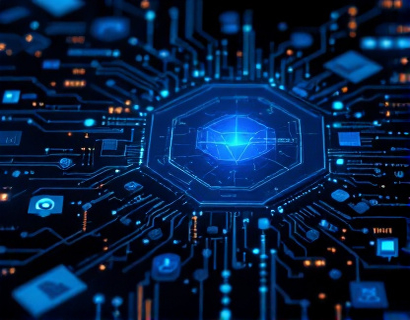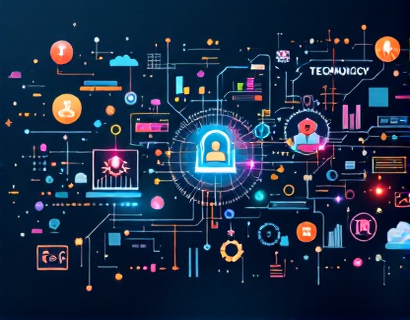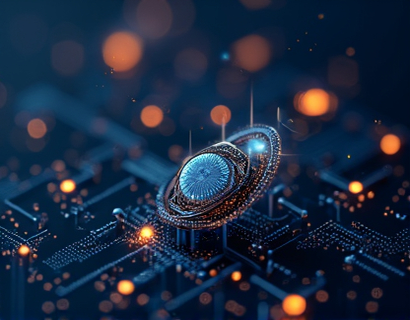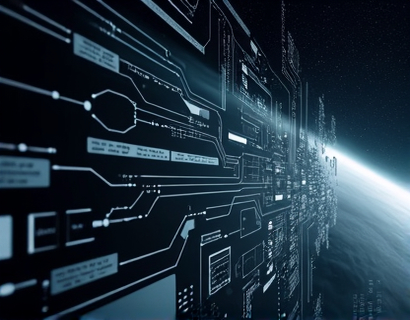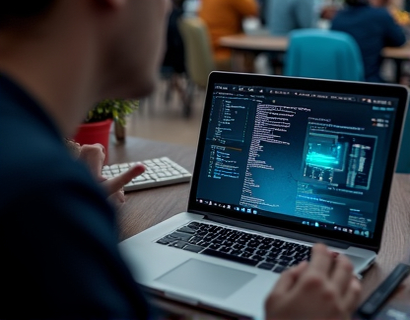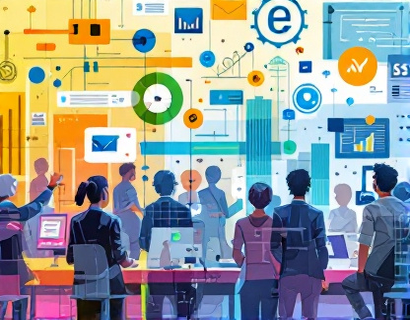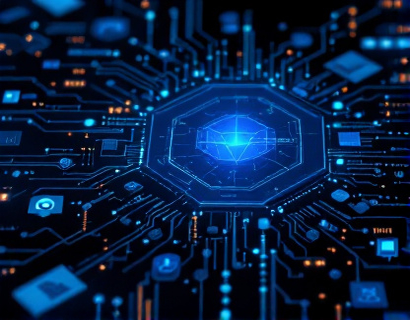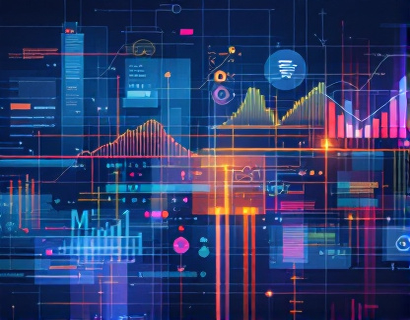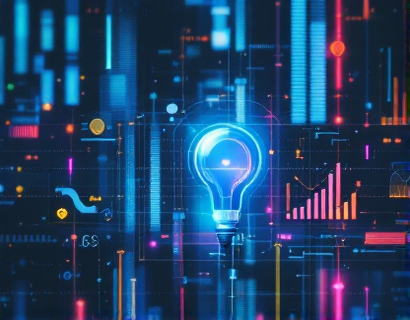Decentralized Productivity: Unleashing the Synergy of AI and Crypto for Next-Gen Business Solutions
The intersection of artificial intelligence and cryptocurrency is giving rise to a new paradigm in business solutions, one that promises to revolutionize productivity and digital collaboration. This fusion, often referred to as decentralized productivity, leverages the strengths of both technologies to create advanced tools that redefine how we work and interact in the digital space. As tech innovators and early adopters, understanding this synergy is crucial for staying ahead in a rapidly evolving technological landscape.
The traditional centralized models of productivity and collaboration are being challenged by decentralized alternatives. These new systems eliminate the need for intermediaries, reducing costs and increasing efficiency. By integrating AI with blockchain technology, developers are crafting solutions that not only automate tasks but also ensure transparency, security, and trust among users. This article delves into the key components of this revolution, exploring how AI and crypto are merging to create the next generation of business tools.
Understanding Decentralized Productivity
Decentralized productivity refers to the use of decentralized technologies to enhance and streamline business processes. At its core, it involves distributing control and data across a network of nodes, rather than relying on a central authority. This approach not only enhances security by reducing single points of failure but also promotes greater transparency and accountability.
The integration of AI into decentralized systems takes this concept further. AI algorithms can process vast amounts of data, identify patterns, and make predictions, all while operating within a decentralized framework. This combination allows for more intelligent, autonomous, and efficient business operations. For instance, AI-driven chatbots can handle customer inquiries without the need for a central server, while smart contracts can execute complex business logic in a trustless environment.
AI in Decentralized Systems
AI plays a pivotal role in decentralized productivity by enhancing the capabilities of blockchain-based applications. Machine learning models can analyze data from multiple sources, providing insights that inform decision-making processes. In a decentralized setting, these insights can be shared across the network, enabling collective intelligence and improved outcomes.
One of the key applications of AI in decentralized systems is in the realm of predictive analytics. By analyzing historical data and current trends, AI can forecast market movements, user behavior, and operational efficiencies. This foresight is invaluable for businesses looking to optimize their strategies and stay competitive. For example, a decentralized supply chain management system can use AI to predict demand fluctuations and adjust inventory levels accordingly, all without a central authority making these decisions.
Another significant application is in natural language processing (NLP). AI-powered NLP can facilitate seamless communication between decentralized applications (dApps) and users. Smart interfaces can understand and respond to user queries in real-time, enhancing the user experience. This is particularly useful in decentralized finance (DeFi) platforms, where users need to interact with complex financial instruments through intuitive and accessible interfaces.
Cryptocurrency and Decentralized Finance
Cryptocurrency is a fundamental component of decentralized productivity, serving as the medium of exchange and value storage. Blockchain technology ensures that transactions are secure, transparent, and immutable, which is essential for building trust in decentralized systems. DeFi, a subset of blockchain applications, offers a range of financial services such as lending, borrowing, and trading, all without traditional financial intermediaries.
DeFi platforms leverage smart contracts to automate and enforce agreements. These self-executing contracts with the terms directly written into code reduce the need for intermediaries, lowering transaction costs and increasing efficiency. AI can further enhance DeFi by providing advanced risk management tools. For instance, AI algorithms can monitor market conditions and adjust positions in real-time to minimize losses and maximize gains.
Stablecoins, a type of cryptocurrency pegged to stable assets like the US dollar, play a crucial role in decentralized productivity. They provide a stable store of value and a reliable unit of account, which is essential for conducting business in a volatile crypto market. AI can help in managing stablecoin reserves and ensuring their stability by predicting market movements and adjusting reserve levels accordingly.
Enhancing Collaboration with Decentralized Tools
Collaboration is a critical aspect of modern business, and decentralized tools are redefining how teams work together. Decentralized workspaces, powered by blockchain and AI, offer a secure and transparent environment for collaboration. These platforms can store and manage project files, track progress, and facilitate communication, all while ensuring that data remains tamper-proof and accessible only to authorized users.
One innovative approach is the use of decentralized identity management systems. These systems allow users to control their digital identities and share them selectively with collaborators. AI can enhance this process by verifying identities and ensuring compliance with security protocols, reducing the risk of fraud and unauthorized access.
Version control and collaborative editing are also transformed by decentralized tools. AI-driven version control systems can track changes, suggest improvements, and resolve conflicts automatically. This not only streamlines the development process but also ensures that all team members are working with the most up-to-date information. In the context of content creation, AI-powered editing tools can provide real-time feedback and suggestions, enhancing the quality of collaborative projects.
Case Studies and Real-World Applications
Several projects are already demonstrating the potential of decentralized productivity powered by AI and crypto. One notable example is a decentralized content creation platform that uses AI to curate and monetize user-generated content. The platform employs blockchain to ensure fair compensation for creators, while AI algorithms optimize content distribution based on user engagement and preferences.
Another example is a decentralized project management tool that integrates AI for task allocation and progress tracking. The tool uses smart contracts to automate payment processes, ensuring that team members are compensated based on their contributions. This not only simplifies project management but also builds trust among team members by providing a transparent and fair system.
In the realm of supply chain management, a decentralized platform leverages AI to predict demand and optimize inventory levels. The platform uses blockchain to track the movement of goods, ensuring transparency and reducing the risk of fraud. AI algorithms analyze market data to provide actionable insights, helping businesses make informed decisions and improve operational efficiency.
Challenges and Future Prospects
While the potential of decentralized productivity is immense, there are several challenges that need to be addressed. Scalability remains a significant issue, as blockchain networks often struggle to handle high transaction volumes. However, advancements in layer 2 solutions and more efficient consensus mechanisms are gradually addressing these concerns.
Interoperability is another challenge, as different blockchain platforms and decentralized applications need to work seamlessly together. Standardization efforts and cross-chain protocols are being developed to overcome this hurdle. AI can play a role in optimizing these protocols, ensuring that different systems can communicate and operate efficiently.
The future of decentralized productivity looks promising, with ongoing research and development pushing the boundaries of what is possible. As more businesses and individuals adopt these technologies, we can expect to see more innovative solutions that enhance productivity, security, and collaboration. The synergy of AI and crypto will continue to drive this evolution, shaping the next generation of business tools and practices.
In conclusion, the fusion of AI and cryptocurrency is not just a technological trend but a transformative force that is redefining productivity and digital collaboration. By embracing decentralized solutions, businesses can unlock new levels of efficiency, transparency, and trust. As tech innovators and early adopters, staying informed and proactive in this space will be key to harnessing the full potential of this revolutionary fusion.








